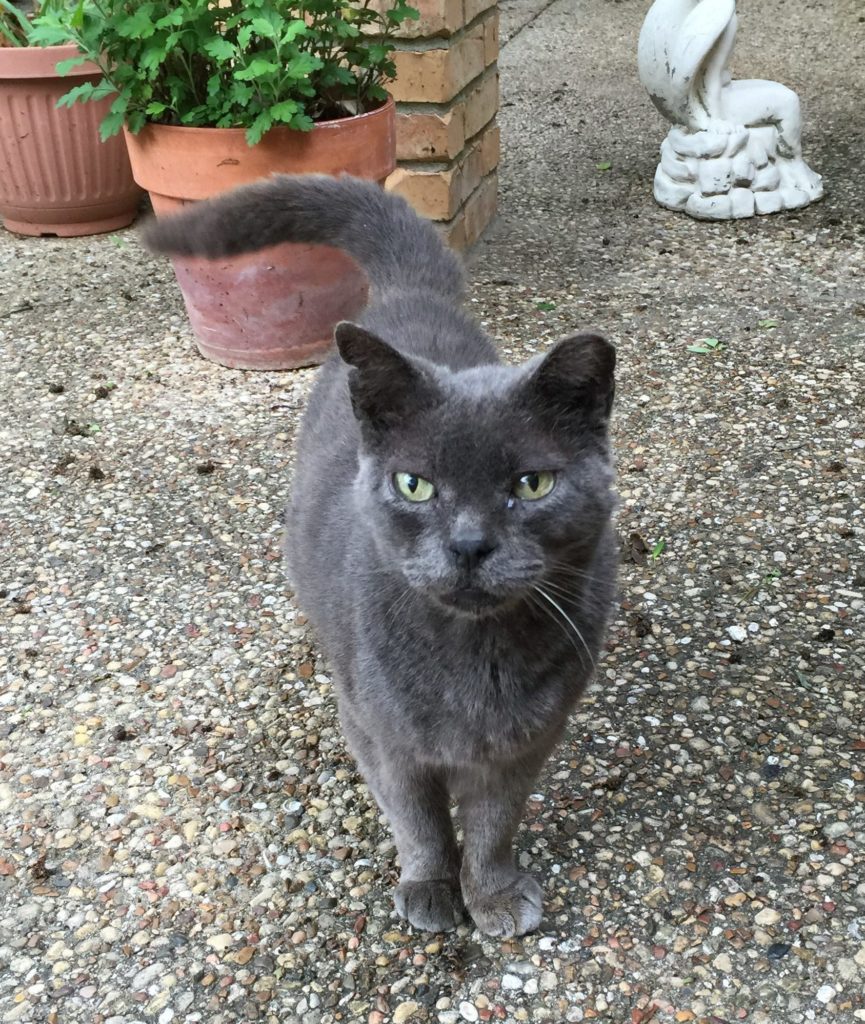A Smelly Situation: My Cat Has Gas!

When your cat has bad gas…OMG!
There you are…watching TV or relaxing with a good book, enjoying some peace and quiet. Your precious kitty is snuggled up next to you or is sleeping comfortably nearby when all of a sudden…sniff sniff…What is that smell? And where is it coming from? Sniff sniff…an obnoxious gassy odor is now surrounding you…and it’s not coming from you…No! Can’t be! How can this putrid, offensive odor emanate from that cute, adorable mass of fur cuddled up nearby, completely oblivious to the fact that it is making you want to gag and run out of the room? Yep, your cat has gas!
It’s a fact of life that passing gas is a normal part of bodily functions. Most of the time it may be odorless, but then sometimes…whoa! And yes, it can happen to our cats, too. However unpleasant, it’s not something you should blow off. It’s a sign that something is off; perhaps not an immediate danger, but not dealing with it can lead to other concerns long term. Train yourself to always seek the “cause” when dealing with any irregularity or disease. According to Dr. Bari Spielman, DVM, flatulence can be recurrent, chronic, and/or representative of a significant underlying disease, and there are several reasons why cats can develop gas or flatulence:
What Causes Gas in Cats?
- Aerophagia (swallowing air) occurs most often from eating quickly or gulping during eating.
- Diets that are high in soybean or fiber, spoiled food, and/or overeating increase the amount of gas produced by the intestinal bacteria and increase the amount of flatulence.
- Dietary intolerance or allergy may induce gastrointestinal signs that include any combination of vomiting, diarrhea, and flatulence.
- Malabsorptive disorders (diseases that cause difficulty absorbing nutrients) and maldigestive disorders (diseases that cause poor digestion of food) result in flatulence by altering bacterial fermentation and food processing.
- Inflammatory bowel disease (IBD) is an inflammation of the walls of the intestines. Vomiting, diarrhea, flatulence, poor appetite, and weight loss are common clinical signs of IBD.
- Gastrointestinal cancer, such as lymphosarcoma and others may cause flatulence.
- Infections of the intestines with viruses, bacteria, parasites may increase gas production, but this is often overlooked because of the significant vomiting and diarrhea they also produce.
- Constipation is the infrequent or difficult passage of feces. It is occasionally associated with flatulence.
Major’s case
My aunt contacted me this week because their former feral turned indoor kitty, Major, had developed a serious gas problem. After finding the list of possible causes above I was able to muscle test him using his photo to determine which issue was the culprit. It turns out in his case it was the food he was eating! He had developed a food sensitivity to chicken and lamb. I also muscle tested him for the rest of the ingredients in his cat food (Fancy Feast Gravy and Classic formulas) and discovered there was quite a list that was not agreeing with his body:
- Rice
- Corn Gluten Meal
- Wheat gluten
- Powdered cellulose
- Dried beet pulp
- Pea Fiber
- Wheat
- Meat by-products
- Artificial and natural flavors
- Calcium phosphate
- Guar gum
- Added color
- Potassium chloride
- Sodium nitrite
- Pyridoxine hydrochloride
This is quite a list! With all these ingredients plus the chicken and lamb, it’s no wonder his body was rebelling. I made some recommendations of brands of cat food to try that don’t include all the above. He also tested well for adding a daily, high quality probiotic and digestive enzymes.
Making progress
I got an update on Major today! He’s enjoying trying out a few new brands of food,(Whole Earth Farms, Canidae, and Merrick) and his gas issues are resolving. I just know he must feel better, too, and my aunt and uncle are happy they don’t have to smell the offensive odor! What’s not to love?
Is your cat dealing with gassy issues? If you’d like to me to muscle test your cat’s condition, food, or ingredients leave a comment below. To learn more about proper nutrition in cats check out this page.
If you enjoyed this post please share it on your favorite social media channels!
Save

